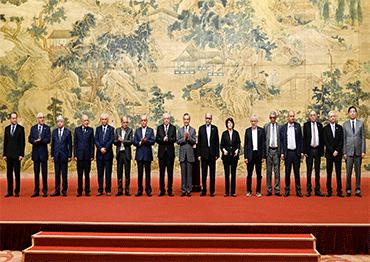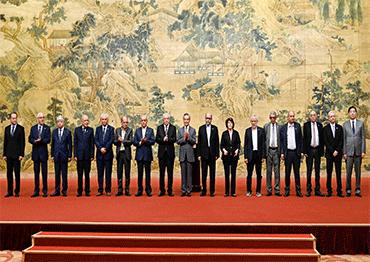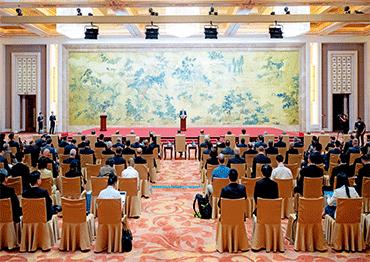In the past months, China has joined many other UN members to voice its criticism against Israel’s strikes on civilians and repeatedly called for an immediate ceasefire, as Israel has resorted to what many consider “collective punishment” on the population of Gaza in retaliation for the Hamas attack on Israel on October 7 last year that killed more than 1,200 people with another 251 taken hostage.
According to Gaza Strip health authorities, as of August 5, the Israeli military has killed more than 39,600 people including at least 15,000 children and injured 91,400 people since the war started, with tens of thousands more believed to be buried under the rubble.
In January, the International Court of Justice (ICJ), the UN’s highest court, ordered “immediate and effective measures” to protect Palestinians in the Gaza Strip from the risk of genocide by ensuring sufficient humanitarian assistance and enabling basic services.
On May 20, the International Criminal Court (ICC) applied for arrest warrants for Israeli and Hamas leaders including Israeli Prime Minister Benjamin Netanyahu and the head of Hamas in Gaza Yahya Sinwar on charges of war crimes and crimes against humanity.
On July 19, The ICJ issued an advisory opinion, saying that Israel’s occupation of the Gaza Strip and the West Bank, including East Jerusalem, “is unlawful.”
China has recently become increasingly vocal about its position on the issue. In a speech delivered at the 10th ministerial conference of the ChinaArab States Cooperation Forum held in May, Chinese President Xi Jinping reiterated that China supports the creation of an independent state of Palestine that enjoys full sovereignty based on the 1967 borders and with East Jerusalem as its capital.
“War should not continue indefinitely, justice should not be absent forever, and commitment to the two-state solution should not be wavered at will,” Xi added.
A major focus of China’s diplomatic endeavors is to facilitate reconciliation among the Palestinian factions, most importantly between Hamas and Fatah. The two main Palestinian political rival parties have been competing for power and influence for years. Following Hamas’s victory in the 2006 legislative election in the Palestinian Territories, which later led to open clashes between the two groups, Hamas governed Gaza and Fatah ruled the Israeli-occupied West Bank.
The two-state solution, which involves creating an independent Palestinian state alongside the state of Israel, is widely recognized by the international community as the most viable solution to the Israeli-Palestinian conflict. However, with the lack of a unity government that can represent all Palestinian people, along with Israel’s rejection of the plan, the solution has remained on paper.
China is trying to promote Palestinian unity. In April, China hosted the first meeting between Hamas and Fatah since the Israel-Hamas conflict.
According to Wang Guangda, a professor at Shanghai Foreign Studies University and executive director of the China-Arab Reform and Development Research Center, the reconciliation deal reached by the Palestinian parties in Beijing, along with the Saudi-Iran agreement brokered by China last year, showcased China’s consistent role as a “proactive, trustworthy and reliable” mediator.
“China has never resorted to military force to pursue its geopolitical self-interests, or to impose its will on others,” Wang told NewsChina, “Instead, it has consistently supported the Middle Eastern people in independently exploring development paths and resolving differences through dialogue and consultation.”
Wang’s view is echoed by Liu Zhongming, professor and director of the Middle East Studies Institute (MESI) of Shanghai International Studies University. “China was one of the first countries to recognize the PLO and the state of Palestine, and it has long adhered to principles of fairness and justice, insisting on resolving the Israeli-Palestinian issue based on the two-state solution,” Liu told NewsChina.
“China’s approach to the Middle East has earned the trust of regional countries, particularly various Palestinian factions, allowing it to play a crucial role in promoting reconciliation,” Liu said.

 Old Version
Old Version

